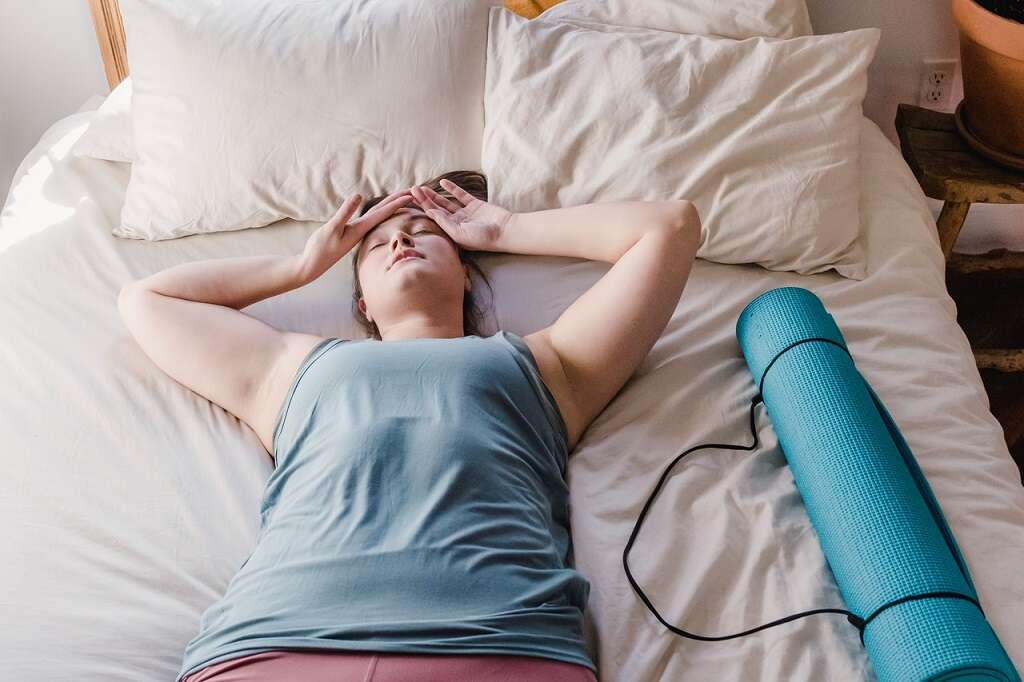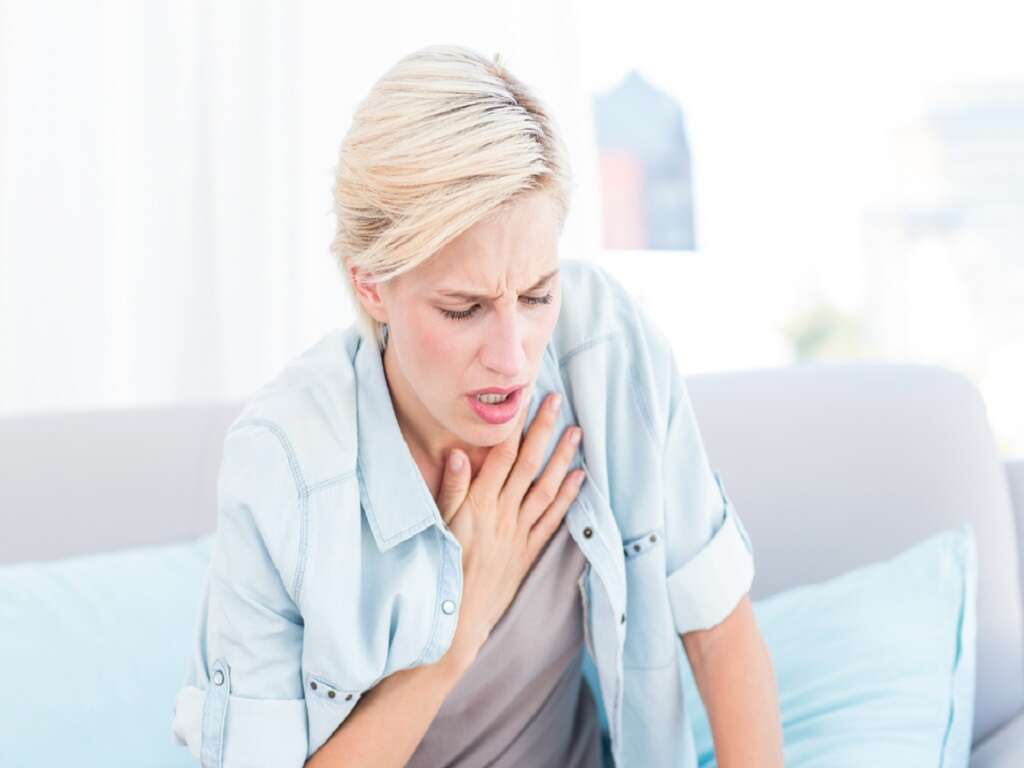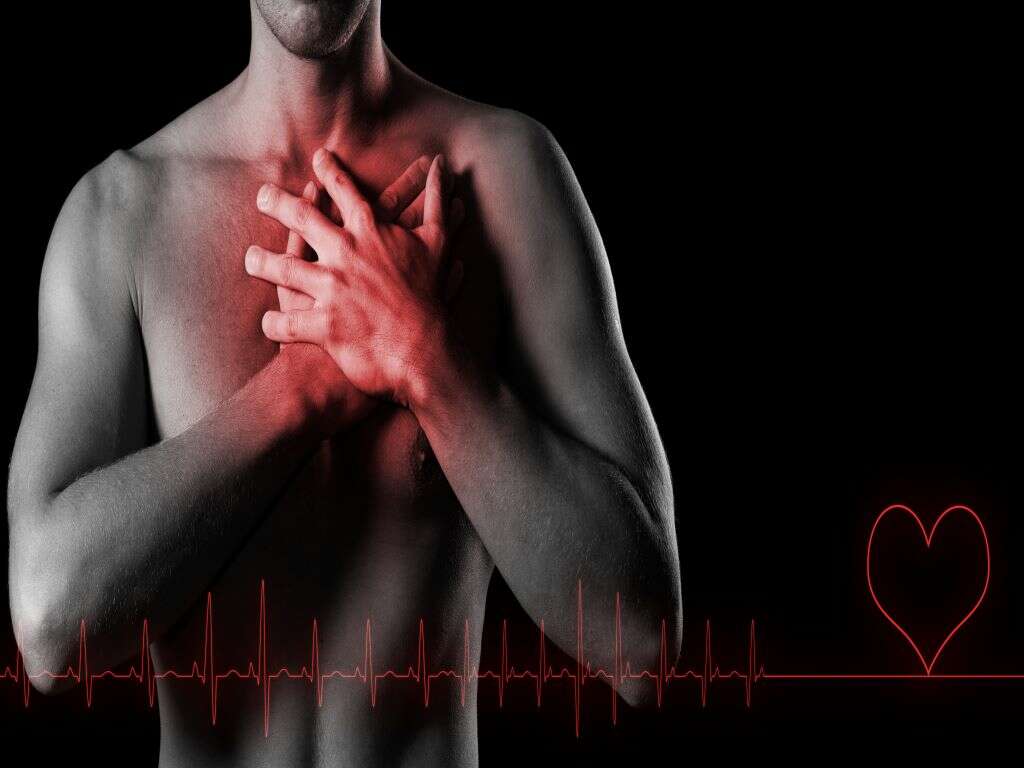10 AFib Symptoms
 Article Sources
Article Sources
- 1. ’Atrial fibrillation.’ Mayo Clinic. https://www.mayoclinic.org/diseases-conditions/atrial-fibrillation/symptoms-causes/syc-20350624
- 2. ’What is Atrial Fibrillation (AFib or AF?) American Heart Association. https://www.heart.org/en/health-topics/atrial-fibrillation/what-is-atrial-fibrillation-afib-or-af
Atrial fibrillation, known as AFib, occurs when the heart's upper chambers, called atria, beat irregularly or chaotically for periods of time. There are four types of AFib. Paroxysmal AFib happens occasionally as symptoms appear and disappear and can last for a few minutes or hours. Persistent AFib lasts longer than seven days. This type is likely to require medication or electric shock treatment. Longstanding, persistent AFib lasts longer than 12 months, and permanent AFib doesn't resolve despite treatment.
AFib can cause strokes and heart attacks, as clots may form during episodes and travel to the heart or brain, cutting off blood flow.
1. AFib Symptoms of Fatigue
One of the first and most prominent symptoms of AFib is general fatigue. Because AFib causes problems in the coordination between the atria and the ventricles that supply the body with fresh blood, organs may operate at lower than normal capacity, and the body responds by demanding rest. This is the main cause of general fatigue in people with AFib.
When the heart and lungs are affected, oxygenated blood is limited for a period. The heart can't pump out the needed red blood cells to nourish the body. All organs, including muscles, are affected.1’Atrial fibrillation.’ Mayo Clinic. https://www.mayoclinic.org/diseases-conditions/atrial-fibrillation/symptoms-causes/syc-20350624

2. AFib's Rapid, Irregular Heartbeat
People with AFib may notice that their hearts don't feel like they're working normally. They may feel fluttery sensations in the chest that indicate an AFib episode. Usually painless, these sensations can be alarming and should be checked out by a physician.
The heartbeat pattern feels irregular, and the heart rate may step up between 100 and 175 beats per minute. A normal, resting heart rate is 60 to 100 beats per minute.1’Atrial fibrillation.’ Mayo Clinic. https://www.mayoclinic.org/diseases-conditions/atrial-fibrillation/symptoms-causes/syc-20350624

3. Thumping Sensations in the Chest
During an AFib episode, a person may feel a thumping sensation in the chest that feels like the heart is flipping over or leaping. This may happen several times during an AFib attack.
The reason for the thumping sensation is that the atria aren't communicating well with the ventricles, which are larger, more powerful heart segments. It's the ventricle that forms the main part of a pulse. When the ventricle contracts irregularly, it may feel like the heart is thumping as it skips a beat.

4. Dizziness
When blood flow is sporadic, the brain and other organs may react. In the case of dizziness, the problem may be in the inner ear or the brain. Missing heartbeats can slow or stop blood from reaching certain regions of these organs, resulting in dizziness or lightheadedness.
While dizziness is typically not prolonged, it may come on when a person with AFib is performing a hazardous task such as standing on a ladder. If dizziness occurs at such a moment, injury risk is increased.2’What is Atrial Fibrillation (AFib or AF?) American Heart Association. https://www.heart.org/en/health-topics/atrial-fibrillation/what-is-atrial-fibrillation-afib-or-af

5. Shortness of Breath & Anxiety in AFib
Shortness of breath, also known as dyspnea, is caused by the feeling that the lungs aren't getting enough air, resulting in increased anxiety. When AFib affects the lungs, it causes them to take in less air than feels normal. The more anxious a person becomes, the higher the chance of dyspnea.
Unless AFib has progressed to heart failure, the sensation of shortness of breath is temporary and lasts approximately the duration of the AFib episode, although anxiety may persist as a result.1’Atrial fibrillation.’ Mayo Clinic. https://www.mayoclinic.org/diseases-conditions/atrial-fibrillation/symptoms-causes/syc-20350624

6. Weakness
Muscles need oxygen and important minerals to function properly at an optimal level. The lack of a consistent supply of blood to the muscles can lead to weakness and the inability to perform normal activities. Messages from the brain may command movement from skeletal muscles, but the muscles may not respond, causing a sense of weakness.
Weakness may also be accompanied by shortness of breath and anxiety during an AFib episode.1’Atrial fibrillation.’ Mayo Clinic. https://www.mayoclinic.org/diseases-conditions/atrial-fibrillation/symptoms-causes/syc-20350624

7. Faintness & Confusion With AFib
Like the muscles, the brain must receive an uninterrupted flow of oxygenated blood to do its work. During an AFib episode, blood flow may temporarily or sporadically reduce the amount the brain receives, causing feelings of faintness.
The part of the brain that regulates cognitive skills, the frontal lobe, may respond to a decreased supply of blood by making it difficult to think and solve problems normally, causing confusion. 2’What is Atrial Fibrillation (AFib or AF?) American Heart Association. https://www.heart.org/en/health-topics/atrial-fibrillation/what-is-atrial-fibrillation-afib-or-af

8. AFib Causing Reduced Ability to Exercise
A lack of oxygen to the heart, brain, muscles and lungs may hamper the ability to be physically active. An oxygen deficit caused by AFib may limit the body's ability to move. Even mild-to-moderate walking may be impossible during an AFib episode.
Sports, gardening and other strenuous exercise may be impossible when the body cannot respond to motion stimuli. Even household chores, such as vacuuming and mopping, may cause shortness of breath and weakness.2’What is Atrial Fibrillation (AFib or AF?) American Heart Association. https://www.heart.org/en/health-topics/atrial-fibrillation/what-is-atrial-fibrillation-afib-or-af

9. AFib & Sweating
AFib can cause sweating in the daytime as well as night sweats. Sweating with AFib is part of the interaction between heart disease and the sympathetic nervous system, which regulates sweat production.
The relationship of AFib to anxiety and stress, even when an episode happens at night, is key. Body stress doesn't always have to be a conscious state. When the body is undergoing an AFib episode, the stress on the body itself is enough to trigger a sweat response.1’Atrial fibrillation.’ Mayo Clinic. https://www.mayoclinic.org/diseases-conditions/atrial-fibrillation/symptoms-causes/syc-20350624

10. Chest Pain or Pressure
When an AFib episode causes chest pain or pressure, it's time to seek emergency treatment. A clot formed in one of the atria may clog or completely block an artery that nourishes the heart muscle, causing it to spasm. In some ways, it's like having a stroke in the heart.2’What is Atrial Fibrillation (AFib or AF?) American Heart Association. https://www.heart.org/en/health-topics/atrial-fibrillation/what-is-atrial-fibrillation-afib-or-af
It's called a myocardial infarction or heart attack. Even if the chest pain goes away on its own, the person must see a doctor or go to an emergency room to have it checked.











